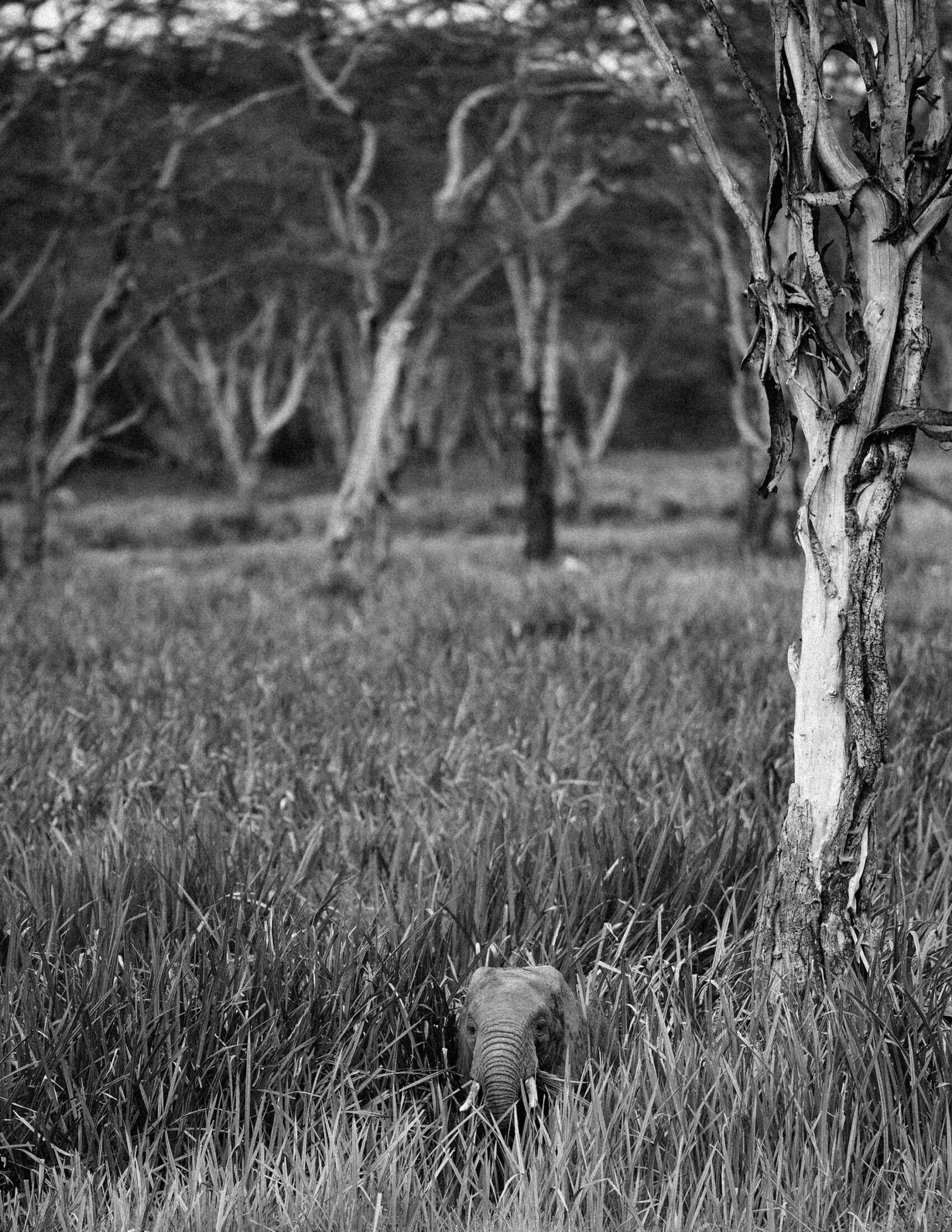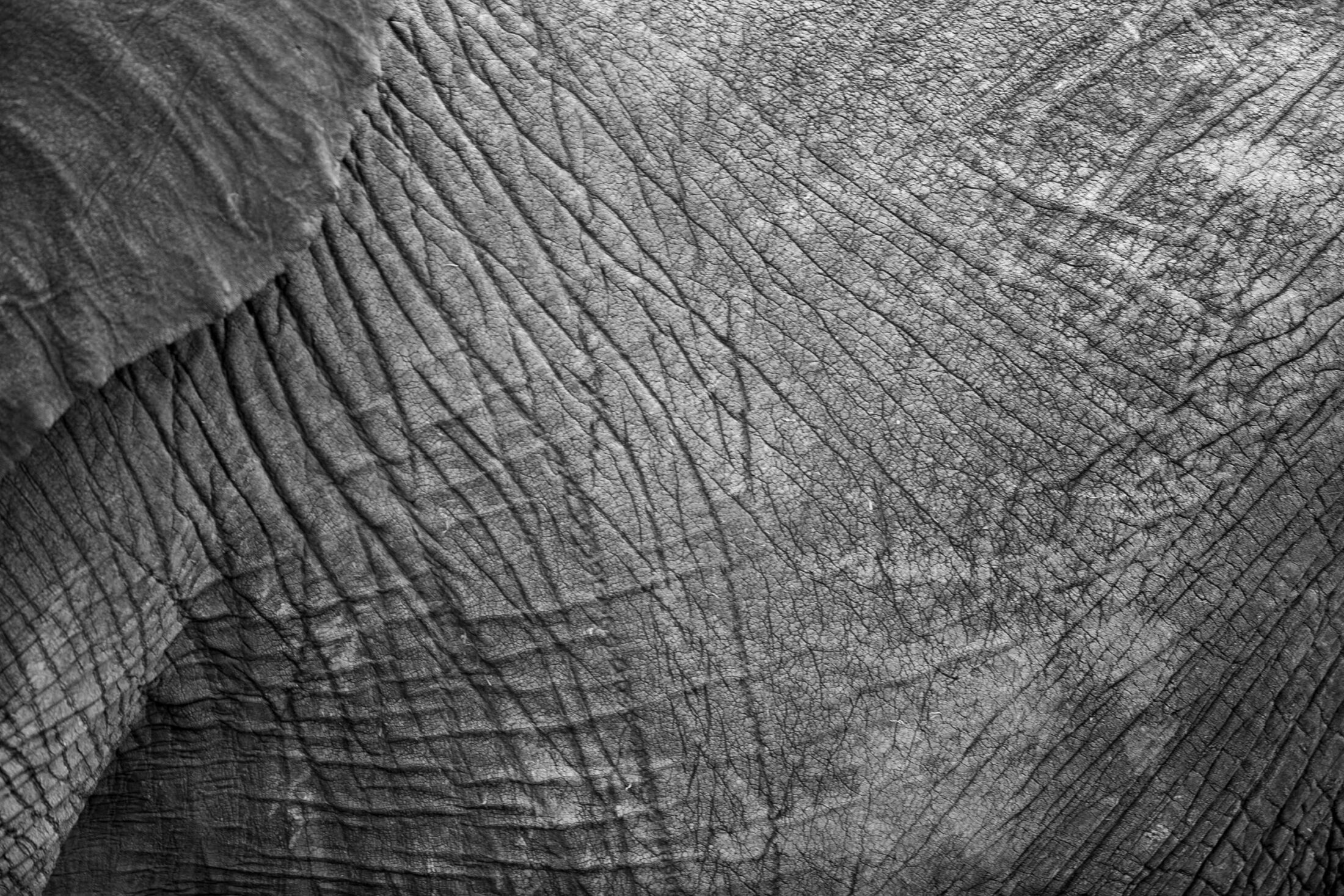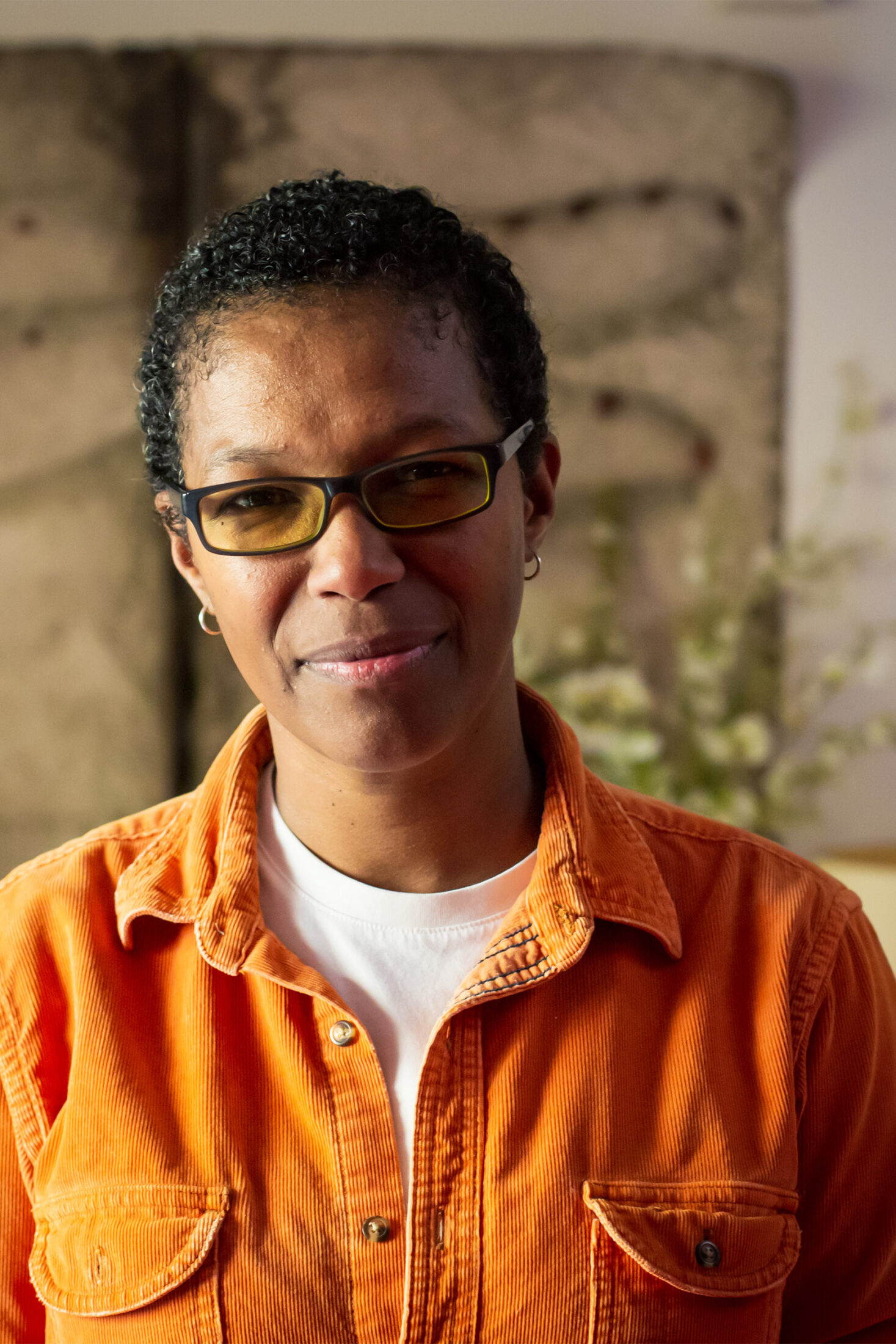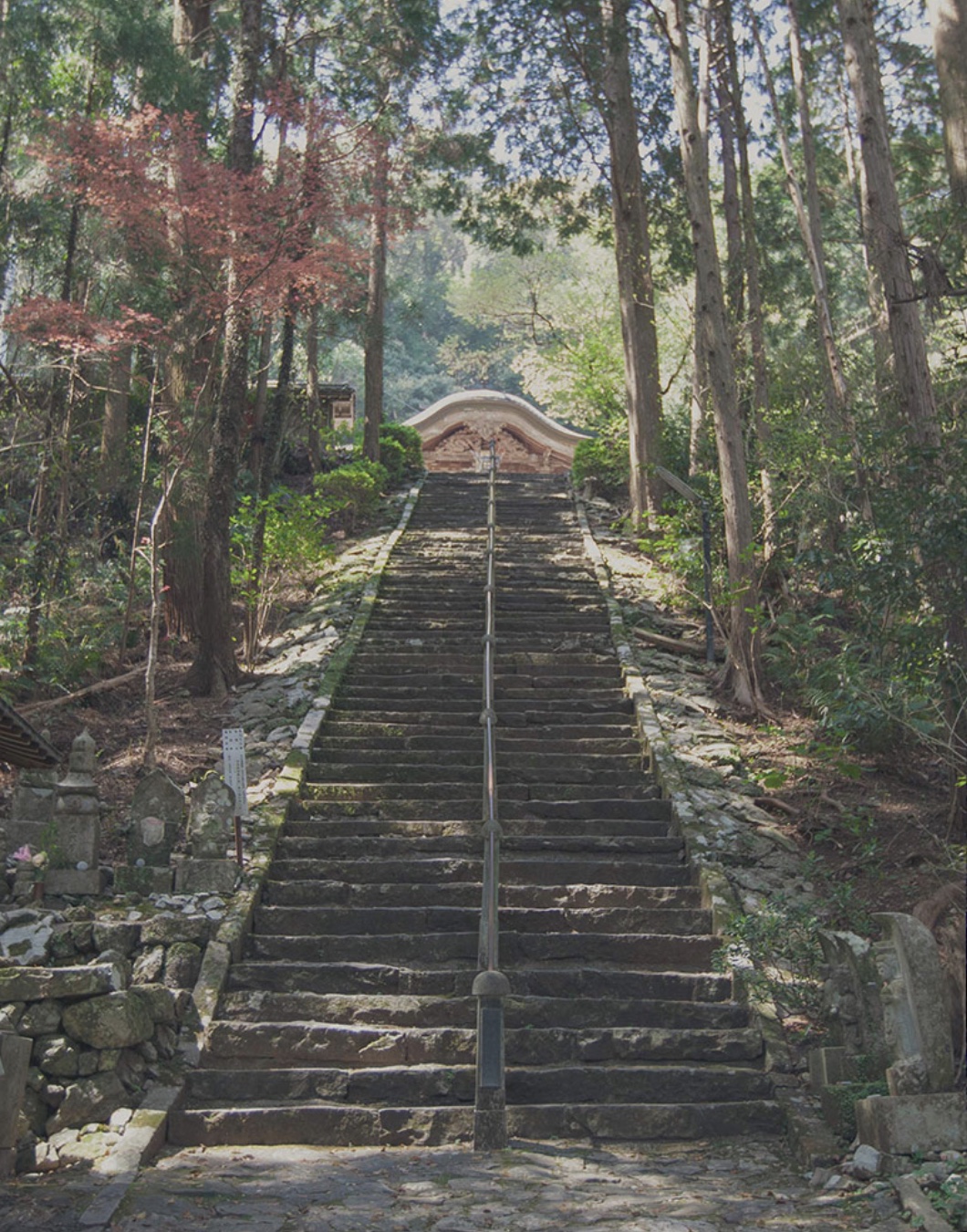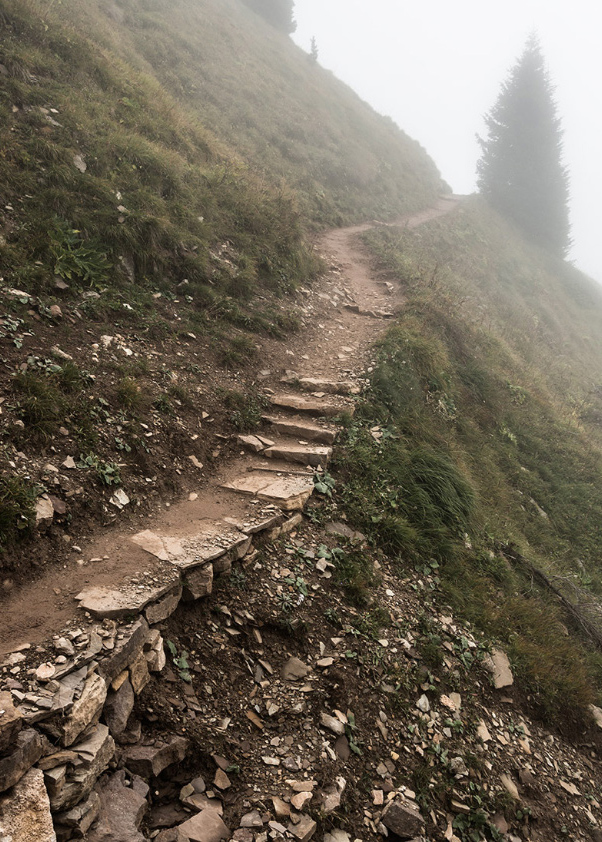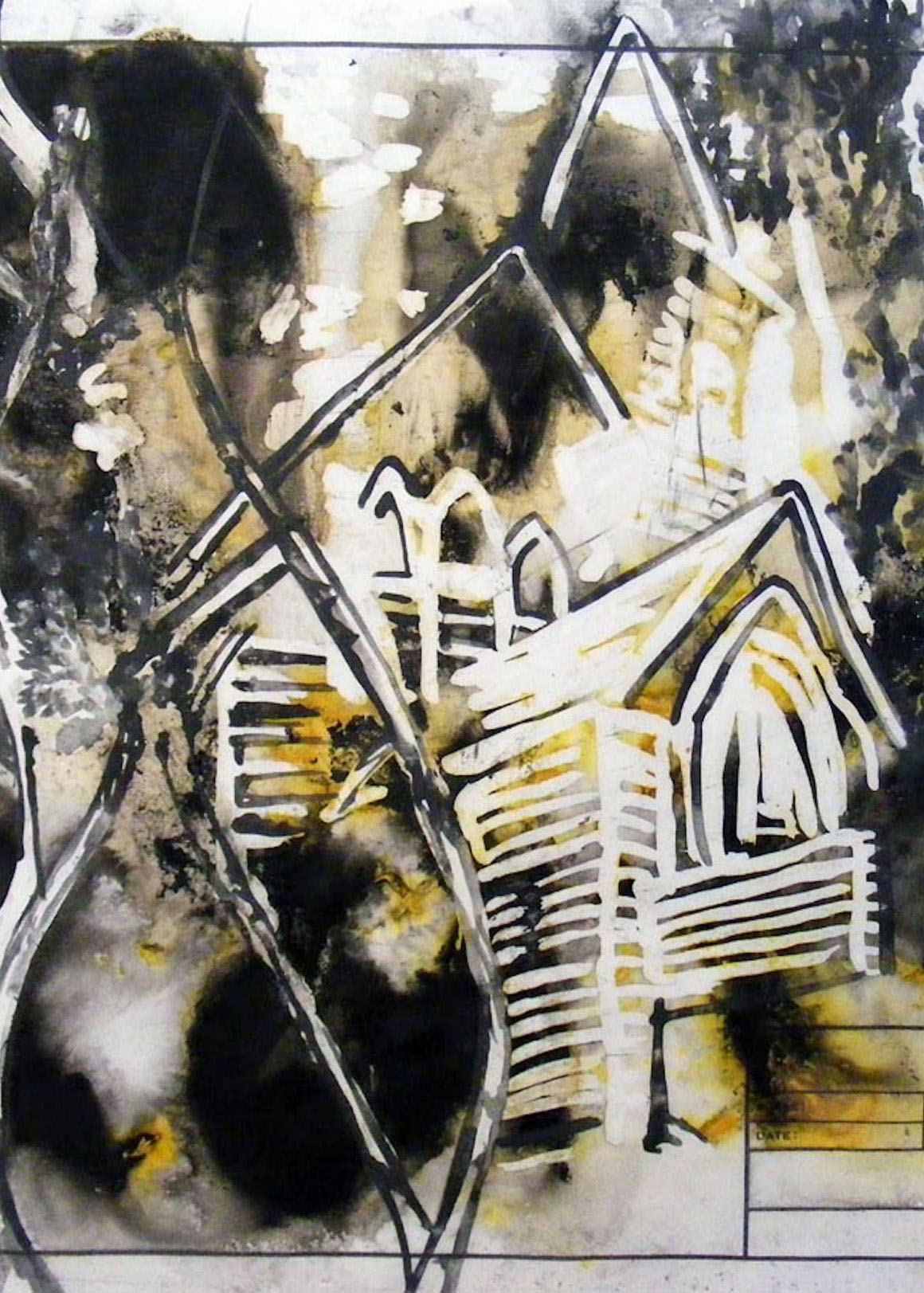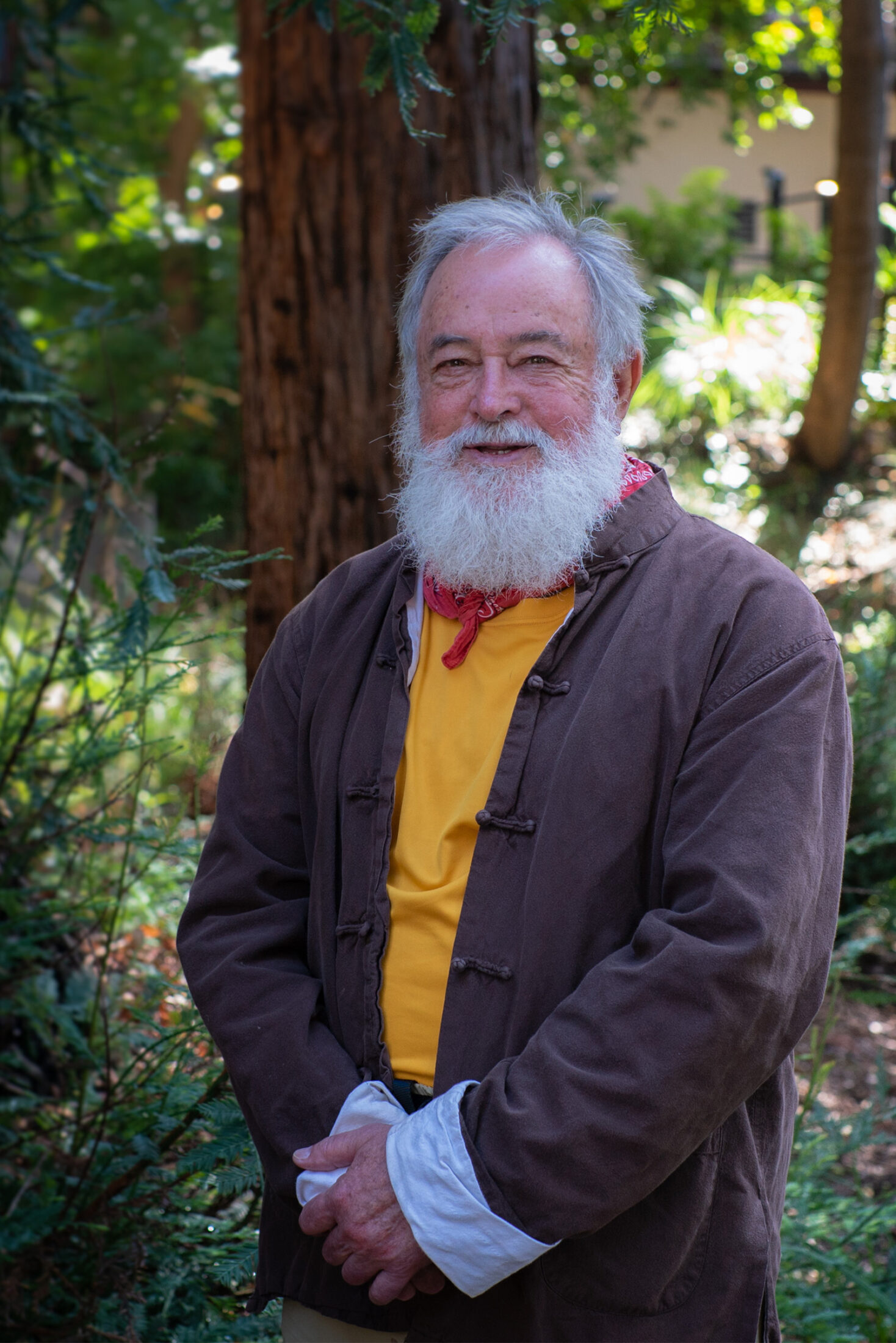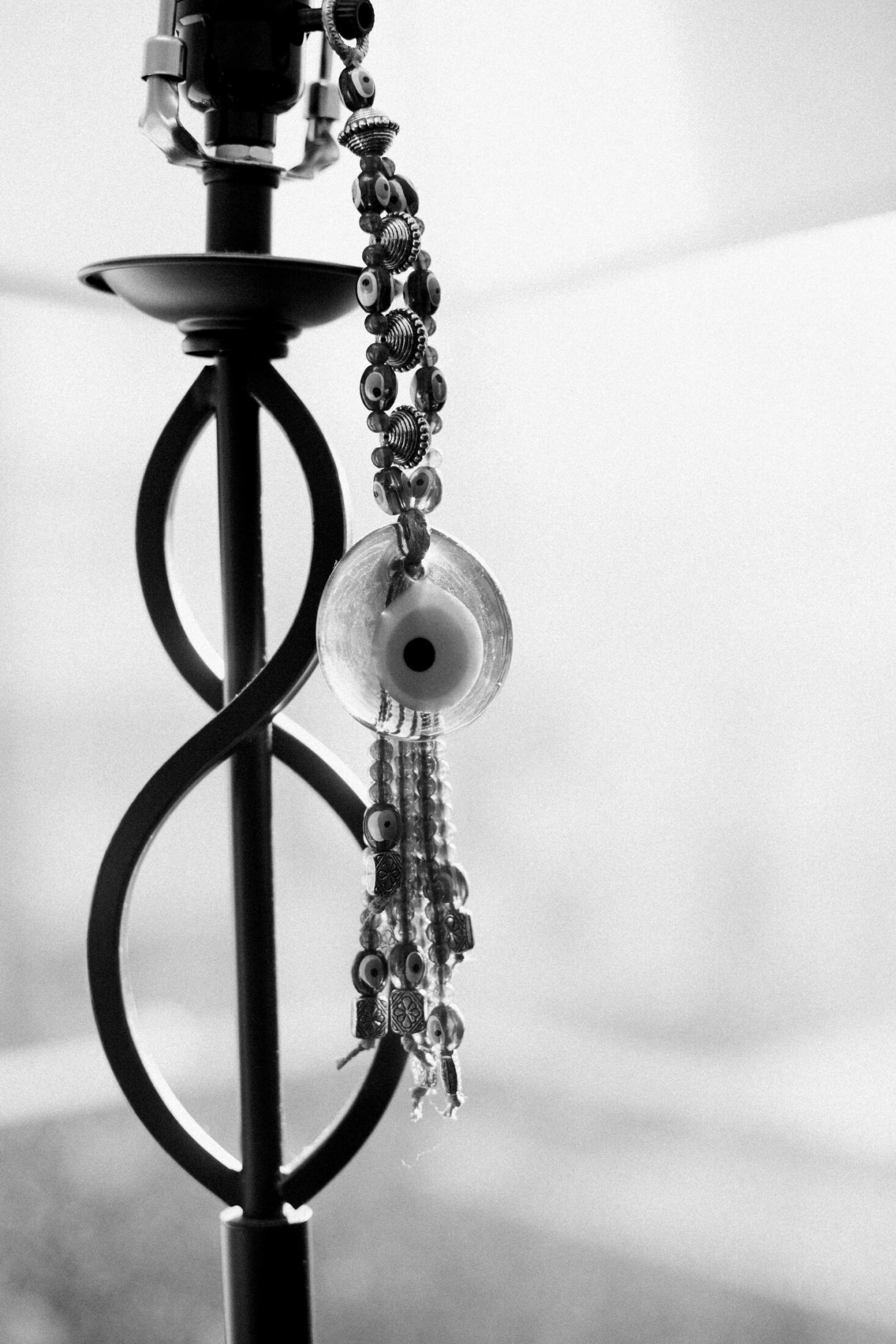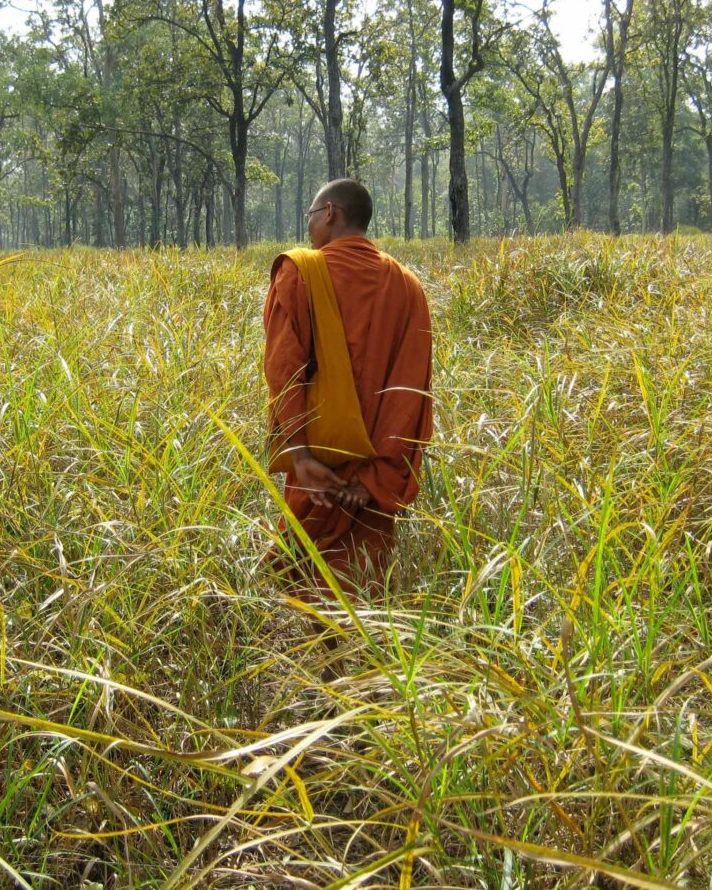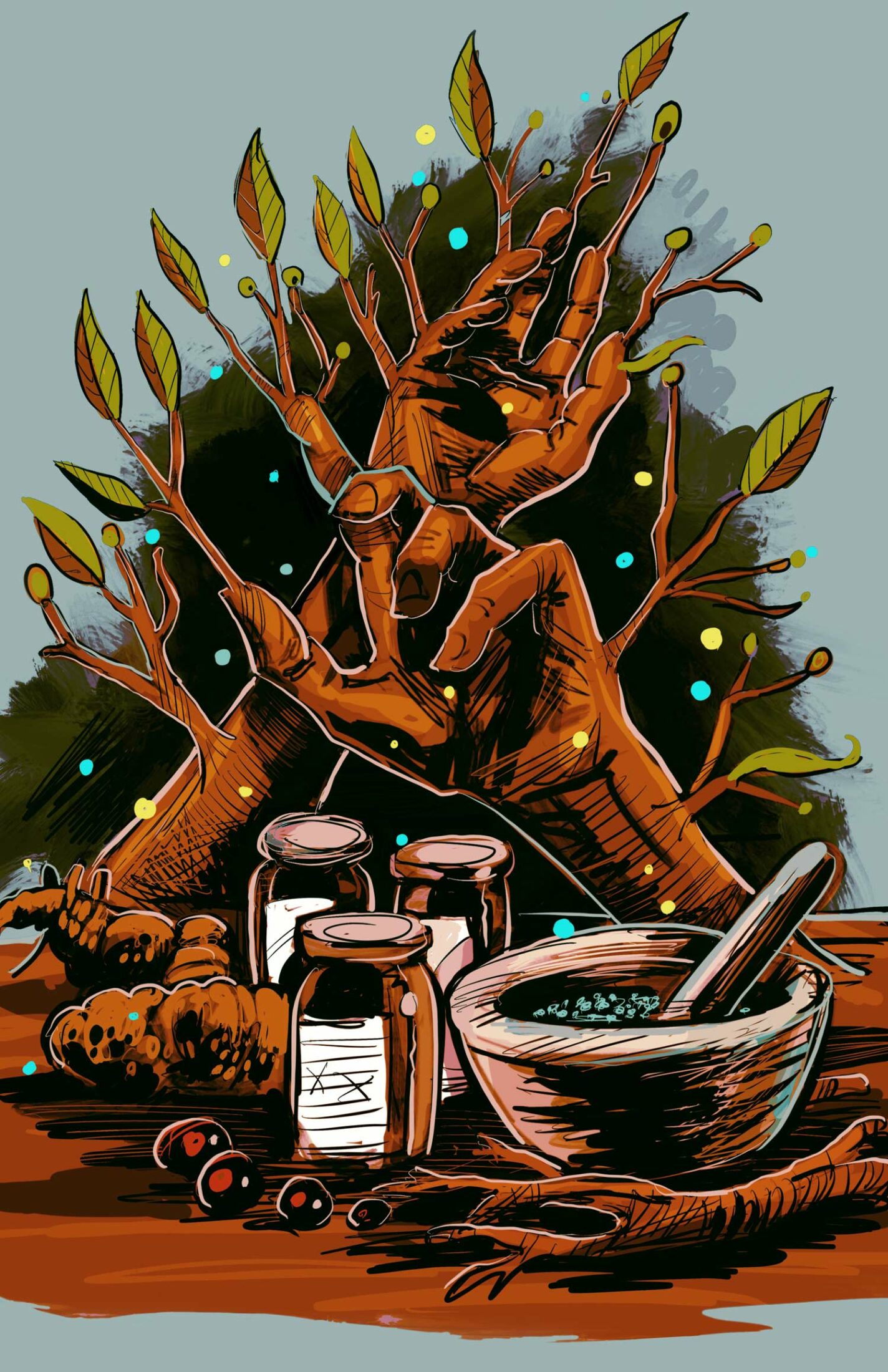
Linda Hogan is a Chickasaw novelist, essayist, poet, and environmentalist. She is author of Mean Spirit, winner of the Oklahoma Book Award and the Mountains and Plains Book Award, and a finalist for the Pulitzer Prize. Her latest book of essays, The Radiant Lives of Animals, won the National Book Foundation Science + Literature Award.
For Linda Hogan, hope lives where faith has fallen away. During an encounter with caged elephants, she experiences a wave of profound and startling love in the presence of beings so very different from—and so very like—ourselves.
On Faith
Hope lives deeper in my heart than faith. It is with hope that I work each day, and at night I curve myself into a quilt of hope’s many designs stitched together. It is hope that keeps my spirit alive, intact, and searching for the right work to follow what I feel from this earth.
In these days, more of us are moving toward a wholeness in relationship with the land and other living beings. In that relationship is meaning and hope that all will survive. For this one woman, faith doesn’t seem enough to sustain the life around me.
Maybe it walked away from me, as a Native woman, as it has betrayed our nations. Faith isn’t solid enough for me in the world of spirit or the lost ecosystems we once cared for. While I see its value to others, I also see that it says, I can believe anything I want to believe no matter if it is truth or reality. Too often this is lacking in knowledge about our world. Instead, I work toward the future, the ongoing creation of our natural world, and for future generations.
With animals I have trust, a sense of love. I know from experience that I need silence and an inner peace if I walk into their presence. They have their own intelligence, one that completes us when taken altogether. When a human animal stands in the presence of another, hopefully trust takes place. When I entered the world of elephants, it was love that allowed me to be fearless. It was trust. It never occurred to me that there could be danger. I stepped into their world with trust, love, and the greatest hope that their species will survive into the future, despite our violent times. Perhaps altogether that equaled faith, or maybe they were the ones with faith. Faith that I would not harm them.
—Linda Hogan
***
Long ago I read of an elder in a village who spoke with elephants. If a group of elephants had damaged a garden or part of a village or if—in the usually silent, star-filled darkness of the African night as people slept—one or more members of a herd entered their village, causing destruction, the residents did not seek to kill the elephant. Instead, the elder went to the elephants to speak with them. He asked the reason for their unusual behavior. Always there was a reason. Perhaps a villager had injured an elephant or in some other way transgressed, causing problems for the herd or for one of them. He needed to know what had been done to create this unusual revenge or why it had torn down a fence or damaged a home. Perhaps machinery was in the way of the animals’ usual narrow path to salt, which is necessary to their survival, or boys may have destroyed a water hole where the elephants drank and rolled.
To discover what old agreement had been broken between them, the man who spoke with elephant people listened. The elephants spoke and it was his work to make things right between the two kinds of people.
This man was a peacemaker, the kind necessary in an unpredictable world where humans break laws that were made with the animals at the beginning of creation. In that time and place, this elder was the one who worked out problems between the herd and the humans of the village.
This may seem so far away from our own lives and seemingly unrelated ways, but through his work at understanding, he brought peace between two species: a herd of great lives and small human beings. He calmed the circle of fear or anger that might easily have escalated into violence.
I think of elephants as those with the ancient mind. They are the old root of intelligent life. Their brains are known to be more convoluted than ours, implying minds with a greater knowledge. Their animal being and presence is old and intelligent.
Some of this intelligence takes the form of love and kinship, even with other species, a care we may someday learn. They are loving with one another, and even with other animals they care for, including our own species. They have learned much more than our own systems of knowledge.
With skin old as history, these enormous creations are maps of ancient worlds and other ways, not those with boundaries drawn tight as our contemporary minds. They are not those with notions of powerful ownership and with borders such as the fences or walls that keep them from traveling to places they’ve known from the long past, locations they need for survival, locations for often-used water, food, shade, or the medicine plants they have used for centuries. All these are now in territories no longer available to them. Yet their presence is necessary in these places. In thick forests, for example, elephants create openings that allow smaller animals to find sustenance where the light has entered.
Old root of our lives, they are solid-footed, unhurried travelers with destinations recalled from their blood memory. At different times they have been on other continents in numerous forms and shapes, as mammoths, mastodons, pygmy mammoths, but always living amiably with other animals, until recent attacks by humans.
These old animals have been our teachers, with their special knowledge of land, and with the strength of compassion and the tender care they have for their young and one another. Tribal people in the past were shaped by this empathy.
I can’t begin to address the intelligence of elephants, except through a few examples. They know where to dig into dry desert earth for water, as if able to sense the location, then make a piece of bark into a round plug to stop up the hole and keep the water from evaporating into the dry heat.
These non-human animals also have a complex vocabulary and way of speaking to one another across distances as far as a hundred miles with a language so deep we cannot hear it (except sometimes as a low rumble), although their heads can be seen to vibrate with the sound, the song, or the distress call they use to communicate with related herds, relatives far away. This was only learned in our recent lifetimes because of the way one herd reacted so strongly to the “culling” of another a long distance away.
In some studies, the parts of the brain that indicate intelligence in humans excel in them, as does the experience of memory—the reason they are, like us, prone to post-traumatic stress and even the imitation of violence they have witnessed by humans.
I didn’t think of this the day I walked into the elephant world. The only thing I felt was the pull of my whole self toward the elephants as if to gravity, although perhaps somewhere in my memory I might have remembered information about how they deeply grieve their losses, even placing leaves and twigs over the bones of their dead, returning to places where the dead have fallen in the past, and remaining in a silent state at that location, and also the way they stay with their dying kindred, gently touching them with their trunk in a show of affection and care.
I didn’t think about how they’d been captured, under what trauma, or what they might have thought about humans from that experience, how they might feel about us. I didn’t consider how they may have been treated in the place where they lived, even after I noticed chains cemented into the floor of their night-time habitat.
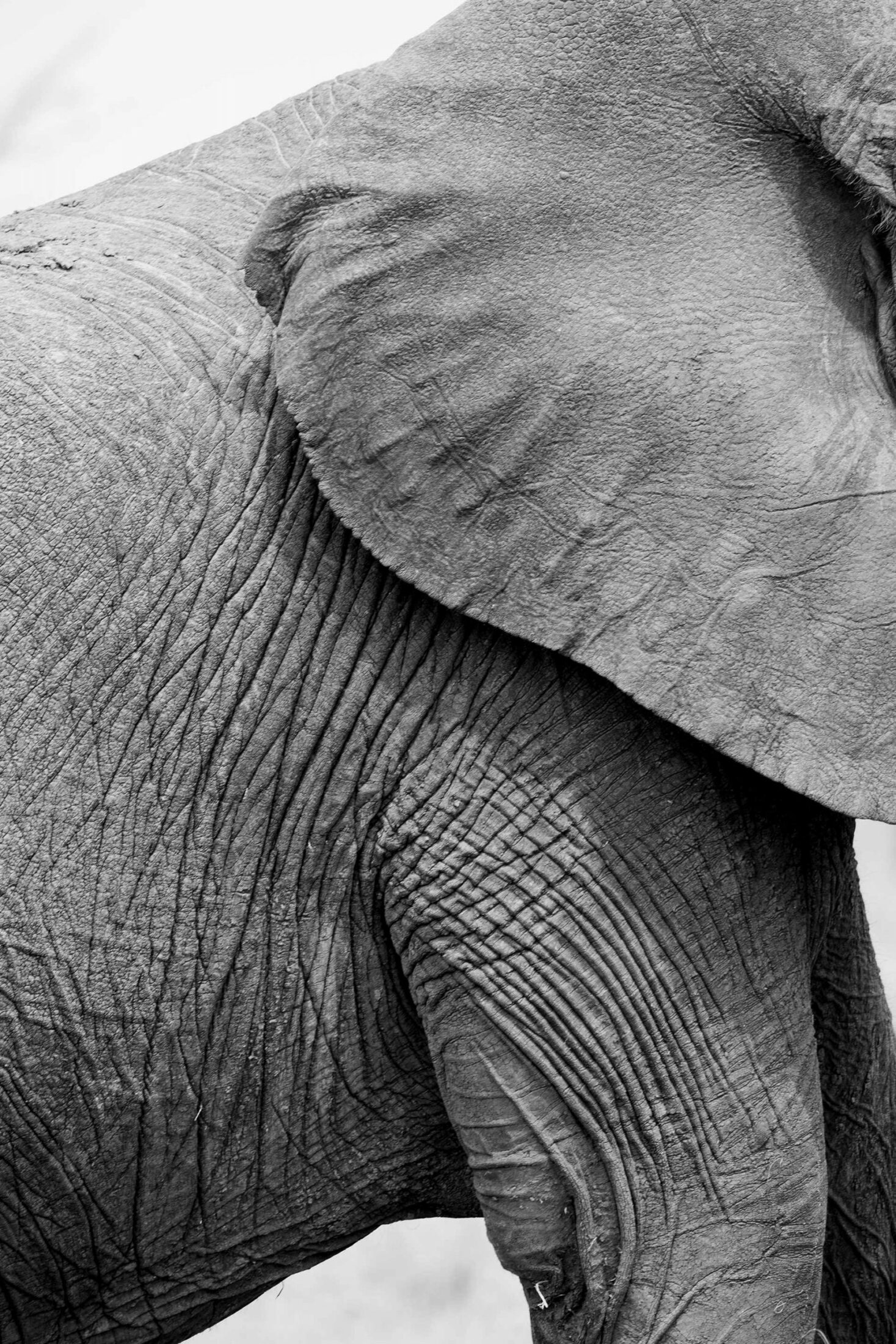
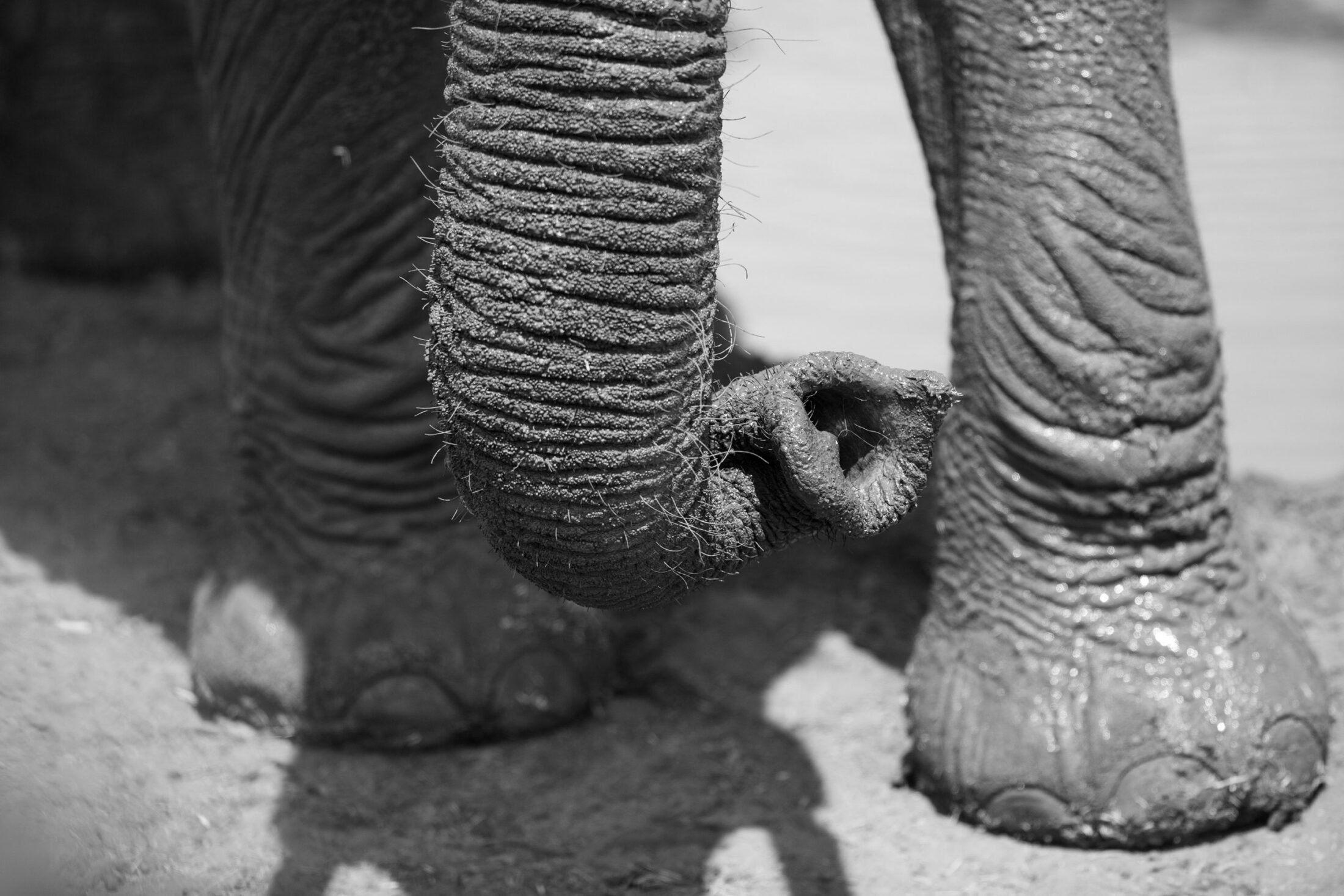
With skin old as history, these enormous creations are maps of ancient worlds and other ways, not those with boundaries drawn tight as our contemporary minds.
I was visiting the zoo because I had an installation at a mountain lion exhibit there. I’d seen the two cougars, now adolescents, with their human mother. Her name was Meagan and she’d given up two years of her life to live outdoors with the lions when they were just infants. She lived with them outside in as natural an environment as possible. No matter the conditions, she remained with them full-time, a close and dedicated mother to the two small cubs. She did what she hoped was right for infants with a mother of another species. Then, at the correct age, they began to separate from her and develop their own independence and ways.
She also trained and worked with many of the other animals. I felt close to her. We’d had a long talk about the difficulty and pain of having autoimmune diseases. I followed her about, listening to stories about the lives she knew so intimately. She asked me to hold a pregnant camel while she worked with its mate. Then she and a few others took the cheetahs to the location where they were able to run their daily long and fast distances.
After that, we went to the cougars, now grown, who still greeted her as their mother, chirping loudly with a sound I’d never heard, purring with even more fervor as she held each one close. I’d read about the healing effects of purring and wanted to place my sore leg next to one of them, but even more than that, like any other human, I wanted to touch them. It seems the essence of our lives sometimes comes down to the feeling of another life against our fingers, palms, our own hands.
Meagan wasn’t there later when the keeper of elephants opened the gate for me to look at the great, powerful elephant people, but once the gate was opened, I walked inside without noticing that everyone behind me became completely still, silent and motionless. They remained outside the gate without moving, only watching.
I knew only that the gate opened and that I felt the pull of my whole self toward those large lives as toward gravity. Never did I fear I might have been in danger when a female came to me and allowed me to reach up and touch the bristly flesh behind her ear, to scratch her rough sandpaper flesh. Her ear opened like a fan. Touch, I realized, was their word, also. My joy at such contact was so great that I didn’t see the other elephants take notice and begin to come toward us, including one large bull elephant I would also have reached out to touch.
We had this time together with my heart open that day. I remember it well, how I touched, then reached toward the side of another, larger one who’d come to me as well, perhaps with curiosity.
We are all lives in other skins, furs, feathers, or scales, each with different visions and dreams and histories, different kinds of earth intelligence, all of it making for one great whole. We are all steeped in our own ways of knowing and being, communicating one to another in whatever way is possible. The human, animal, and plant world each add a piece to the puzzle of one great earth consciousness, one mighty and beautiful terrestrial intelligence.
No other human said anything or moved as I looked into the dark golden eye of the male elephant. I had no knowledge, or even curiosity, about this thrown-together herd, each having come from who knew where, and together for how long? But I had a great and connected understanding of the emotion, the sorrow, in that great and communicating eye. Few of us are ignorant to the feelings of others, especially to fettered spirits.
Time passed. I heard my name called. I wanted more time. I stayed just a small moment longer, trusting. Those who remained outside the gate feared for my safety. To my dismay, the main caretaker of elephants came part of the way inside and pushed the male back with a large pole I later learned was called a bullhook.
I cannot bear to witness the many places where wildlife are “kept,” where an animal is no longer what it was meant to be in its life. Not in a zoo or in the large spaces that tourists drive through. These are still only marginalized animals. They must trust those who may have betrayed them. Not only in their being, but physically within margins and boundaries, walls and fences. Watched and often harassed by humans. Many may never have known their own natural world. Or, like crows, they might be able to tell one another their stories; in some mysterious manner unknown by us, information may be passed between them.
Their populations in the wilderness are dwindling. With ivory still rising in value, their numbers have greatly declined in the savannah, forest, and desert wildernesses. In addition to the horrors they experience with poachers, they are also killed by trophy hunters, those who want to take down something larger than themselves and show it off, because they can. So they can show how strong they are. So they can show their ego or wealth. Deaths are calculated to be one every fifteen minutes.
When the older elephants are “taken,” sometimes the young imitate the violent behavior of their attackers. The witness of human brutality has become natural for those elephants. They may see us as creatures with enormous guns, spears, saws, drones, and they may associate us with fear, dislike, and other emotions.
I don’t know what kind of person steals a life for money, prestige, or status, what kind of animal that may be, but these people make a statement about all of us as a species, as varied as we are, as if to say we are cold of eye, colder of heart, and frozen in spirit. Then there are those of us who are filled with compassionate heartbreak and awe at the magnificence of all the lives around us, and these people grieve the many losses.
Elephant infants are sometimes kidnapped for show or to be hunted later on private lands in the United States and elsewhere, leaving their mothers weeping for the young. And having the intelligence of elephants, they sometimes react with violence of their own, in ways we might call neocolonialism, attacking other animals, killing, raping, pillaging, and participating in violence they have seen in the massacres taking place in their worlds, against their herds. They have come together like gangs not unlike children and teens in the same situation. There are no elders to help them, to calm them, and no words for the pain and tragedy they have suffered.
Fortunately, there are people searching for a way to save them and to help them survive. Centers for rehabilitation and restoration work to take away the harm the survivors have witnessed in their short lives of fear and distress, to relieve the depth to which these lives suffer in their broken tenderness. These centers have grown in number, offering more locations where elephants are taken to heal from post-traumatic stress and are given care, as have the men and women who return from violent wars.
Here they make relationships and their friendships need to remain steady, calm, slow, and with constant awareness that they might turn on a human without notice. They need the company of others like themselves, not isolation. Like humans, loneliness can overtake them. As herd animals, these creations on our earth offer one another a kinship from the life of the heart. Mine is constantly broken. The older I grow, the more tired I become of watching what we do to others, and to ourselves, how much hatred we have for the force and beauty of life inside human beings, animals, and earth. We are animals who have a great capacity for something we don’t yet name and, gratefully, it lives within so many. Ours, too, is a world of margins and marginality, of displacement and loss.
It seems the essence of our lives sometimes comes down to the feeling of another life against our fingers, palms, our own hands.
That day in the zoo, I didn’t know about elephants’ experiences with PTSD, that there might have been a moment, a certain motion, some event around us, that could have set off an old memory in their brain, break open a history or fear within them, that would destroy an otherwise peaceful experience. This is how their own neurobiology is akin to ours. It happened in a case several years ago, when a peaceful elephant killed her own dear friend and caretaker. An elephant known to be gentle and friendly was in a place that was safe, a place of relative freedom for those who had been rehabilitated from loss and trauma. In one quick movement, this gentle elephant picked up and killed a young woman who had worked with her for years. No one knew what precipitated the sudden violent moment. This not only grieved the other helpers, who loved that elephant even in their mourning, but the elephant had great remorse and grief. She suffered yet another loss. What could be done with an elephant after such an experience, I never knew.
We have long known, or learned, the need for, and importance of, elders in the lives of humans and other animals. Older humans are the ones who develop wisdom and the most significant knowledge and abilities to pass on, like the elder at the beginning of this writing who spoke with the elephants about how to make amends. Too often these true and wise elders are separated from the young, and not as respected as they were in the past. But also, many of our human elders lack the wisdom once possessed for deserving the title of Elder.
In animal herds or packs, the elders are the ones unfortunately lost too soon. The older elephants are those who pass on language, knowledge, the skills and right behavior in a world where all this is a strong necessity. They pass on the skills of survival. Yet too often these, the most mentally developed and experienced, are the first to be killed as trophy animals: those with the largest tusks, the ones who feed human ego and greed with the largest amount of meaningless, but valuable ivory, by some human measure.
These older lives are the ones who pass on the important qualities. With elephant matriarchs in place, the young follow orders, and when necessary, together they may create a wall of support for infants or stand powerfully together against threats. For herd animals, these relationships remain steady and stabilizing. With wisdom accumulated from years of experience, the elder matriarch makes the decisions that are followed. They offer to the others a life of the heart and trust.
Without these matriarchs, a young group of elephants may behave like gangs, attacking and killing other animals. With no elders to teach or calm them and no way to communicate the pain they have suffered, the young may imitate the poachers who have overtaken the herds with human violence. It is the same with wolf packs. It is most often the alpha females who teach younger ones the necessities of survival and the right ways to behave and hunt. Wolf matriarchs have the largest, richest furs. When those elders are killed by hunters or ranchers, the younger wolves are in disarray. They kill whatever food is the easiest source for them, sometimes domestic animals. Their actions further endanger their own lives.
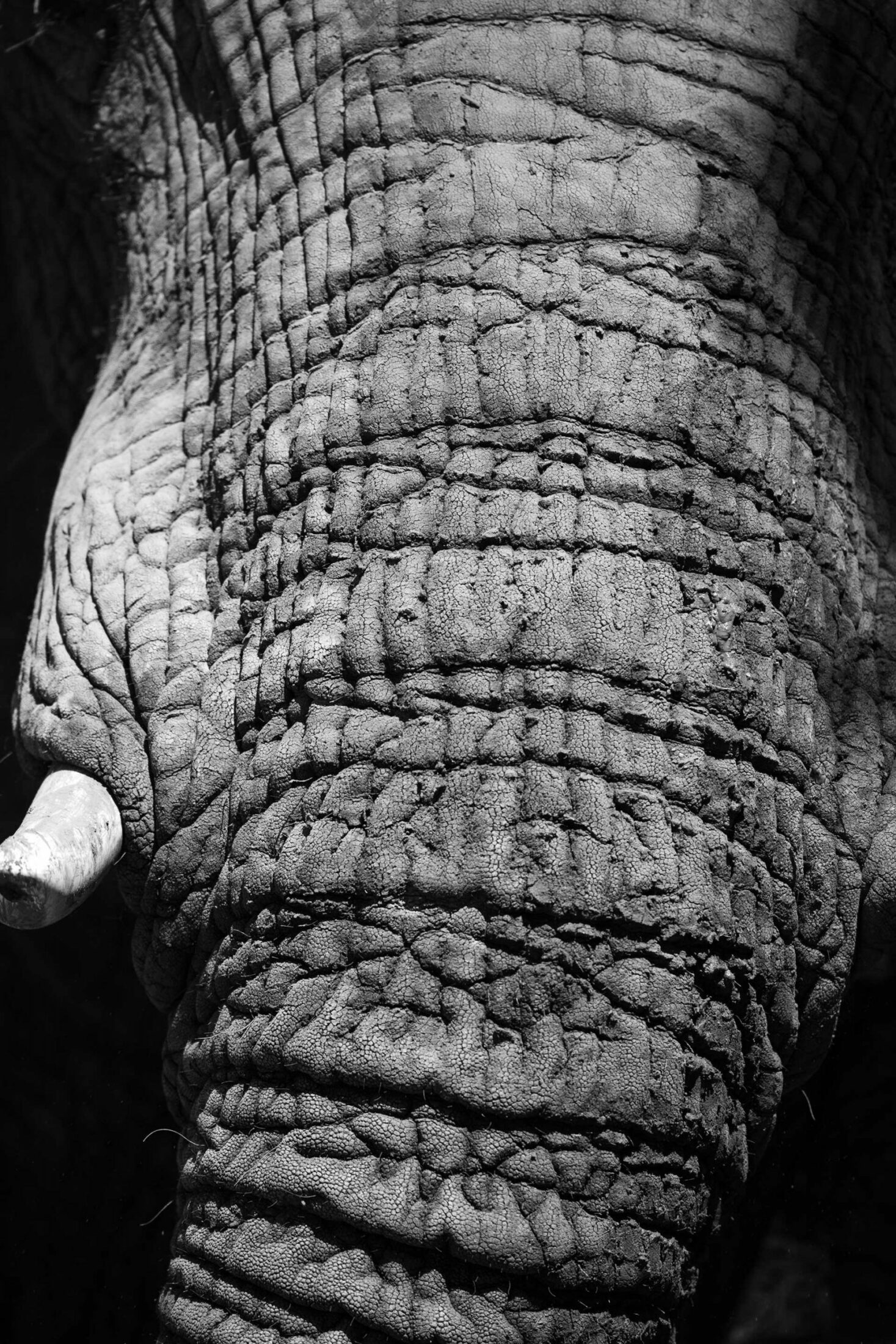
We are all lives in other skins, furs, feathers, or scales, each with different visions and dreams and histories, different kinds of earth intelligence, all of it making for one great whole.
The day I scratched the nearest elephant, she felt like old earth and was so happy to be so touched. She smelled like ancient forest, old desert, and wet mud from a water hole; yet there was no mud or enough of the shade they need because the skin of their young is so tender in burning hot sun. No reachable trees. Later I learned it was because they might pull up a tree and have been known to use it to hit a keeper or to short out an electric fence with it. That is how highly developed their cognitive skills and ability to think and logic are.
Looking back years later, and after taking a class from animal ethologist, Gay Bradshaw, I realize the gate was opened only so that I could look at the elephants inside. But I don’t believe anything could have held me back from that encounter, as if the action was not my own will, but more like being called. I wasn’t looking for them to like me or to think I was a good human. I was thinking those other things about them, their ability to care. I’d seen enough of human neediness for recognition from animals that people often seek. On that warm day, I entered their world.
I thought of them as beautiful creations because of their great depth of compassion and cognition, knowing that they speak a language so deep we cannot hear it. Their compassion carries over to their grief and memorials for loved ones, the way they remain with the dying or caress the body, then the bones, of the dead, even covering the bodies of loved ones with brush and tree limbs. Once I read about an elder woman who had napped under a tree in Africa. After several investigations by the larger species, she, like their dead, was covered lightly with leaves and small sticks.
Some have cried tears of joy at being rescued by humans who care for them and try to take away what they have suffered. In one location where elephants are kept by their rescuers, the caretakers sleep in the same shelter with them through the night. The men who care for them are gentle and kind. The elephants even introduce them to others, as if they are members of their family. These are the great animals who have wept for their freedom and cried for their infants.
One woman in particular, Dame Daphne, worked all of her adult life, hard work, to save hundreds of distressed elephants in Africa. She showed great kindness and affection toward them. As she became an elder, a gathering took place where a large number of elephants lined up to greet her and show their gratitude and love toward her. They remembered her, even after they had been rehabilitated and restored to the wild.
Dame Daphne saved hundreds of animals in serious distress, injured, orphaned, or attacked. Now they showed the same sensitivity in return. I imagine the elephants’ manners as they lined up, waiting patiently to see her once again. Such dignity they revealed. Such gratitude and elegance, and the clear and gentle grace they showed, matching her own. There was great respect for this pure-minded elder who helped so many; I recall Oren Lyons, the Faith-keeper who speaks of faith as respect and reverence. I imagine what their lives might be if undisturbed by the humans.
I had my moment with elephants. I wish it had been more. Far from the great lands where they have lived, their lives are so greatly diminished and they long for affection and touch and love. In that, we have a mutual understanding, a common need.
That particular day, I entered their world. I was comfortable with my own steps and with theirs, as if we had passed through the dimension of time together as species barely known to each other, but trusted and trusting, drawn in by amazing lives, theirs a world on one side of a gate, mine another. Something I didn’t even know drew me like a magnet pulls iron from out of the earth. Time changed. I couldn’t tell if it was moments or hours, but my small presence drew the attention of other elephants, large and beautiful lives coming forward until they stood around me. The rapture of being with such people was something my heart knew. I was in the presence of a gentleness as large as their massive bodies. I asked for nothing. Perhaps that is why I sensed such joy in their animal presence. I was a mere human being, not a tree, not a water hole, but a human touching skin rough as the sands of Africa or the hills of India or the jungles of Thailand, places they must have longed for.
They saw this small human, vulnerable yet not afraid, entering their home surrounded by a moat, distant trees, heights and depths to keep them from escaping or anyone from crossing the line toward them. They watched me, but all human thought had left me. This was only about elephants, and what did they make of a being without worry or need, only to be there with them, and with small hands, even my own worry so very small, and no needs and desire for them to love me or to forgive me as they should for being this species.
They were foreign in a country of concrete, moat, fence, not with any familiar world around them, and a small other species so unlike them, but an object of interest, or possibly a distraction from the daily.
For a moment they were curious and for that moment I could be an act of kindness. I could be a child. I could have been a saint. I could have been an enemy. I could have been anything, because I was an unknown. But they knew what I was not. I was not a lie. I was not in power. I was not authority. I was not a keeper who inherited the job from a family line, learning from them all that I needed to know. I would not chain their feet at night or in any way control them. I was only a scratch behind the ear and that moment felt good and right. For only a moment, only one small, brief slice of time, was something that could be free.
I forgot my own life in their presence until I heard my name called out again.
From outside the great surrounding of their world, I was taken back to humans who were warily watching, maybe even guarding me. I was told, No one does that, steps inside, touches that way, and has no fear, no one but maybe a child.
This woman was no one. That was my name for a brief time. The name gave joy and happiness to me and a few other creations on earth whose psychology was only then being learned. I wanted to be no one in our world of so many valuable, intelligent species.
Afterward, I not only took Gay Bradshaw’s class, but discovered a book and read about how certain elephants “lose it” when groups of men assemble, or certain events “set them off” and remind them of their past painful history.
How do we humans decide what another species is and what they feel or think, what that creation inside another skin or fur means, and all it includes? Tusk. Skin, bristle, or the softness of a domestic animal. Elephant feet large and rounded. Ears large, hearing what we can’t hear from hundreds of miles away. Eyes intelligent and old, ancient memories and hearts the same. How did I find love in this manner, I wondered, when I read how badly they are taken: a creature life rounded up, loved ones killed, bodies damaged, sometimes for the capture of a few or only one, most recently just for the tusks, or the belief that some part of them will grant men in other countries more sexual abilities, as if they think what a lover needs is not their own tenderness and gentle touch.
I read how they can hate as we do, and perhaps throw a beloved human to the ground over and over, go on a rampage, suddenly remembering their past. And it is true: An elephant never forgets. They remember their early love. They recall how much tenderness they’ve had. They love as we do, if not more. They hate as equally. They care and are creative in ways constantly being discovered. They can destroy just as easily. That is like the human we are. It is the mystery of their species and it is the truth of our own humanity.
